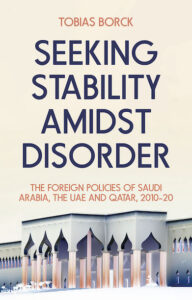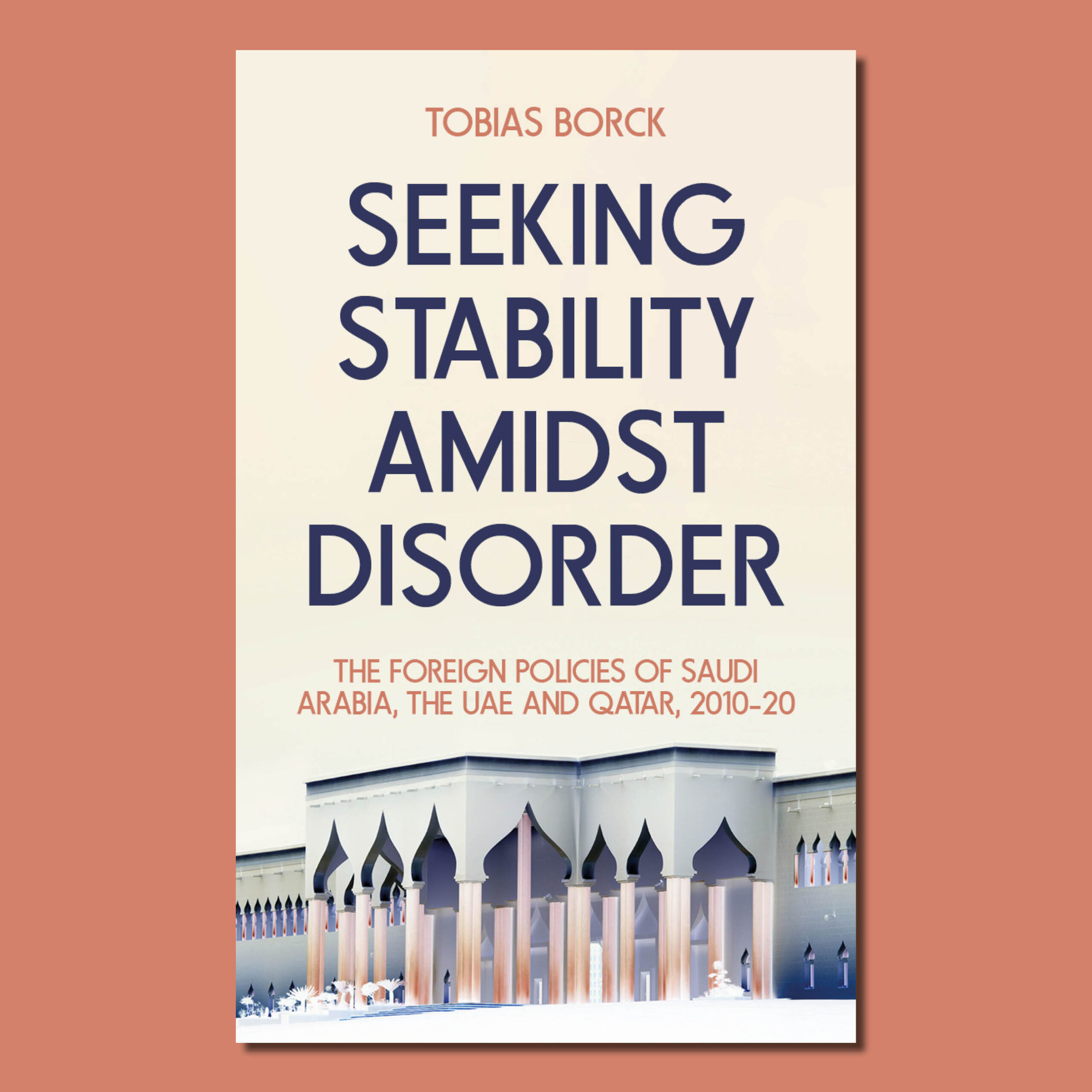The Middle East’s regional order is evolving rapidly. Since the watershed moment of the Arab Uprisings in 2010/11, Saudi Arabia, the United Arab Emirates (UAE) and Qatar have been amongst the most dynamic and influential regional powers. Seeking Stability Amidst Disorder traces the foreign policies of these three Gulf Arab states during the 2010s, focusing particularly on their diverging and often competing conceptions of regional stability.
The discussion will focus on the ongoing regional dynamics in the Middle East – and the foreign policies of Saudi Arabia, the UAE, and Qatar, in particular. Panellists will explore the similarities and differences in how the three countries see their region, and what they hope to achieve through their actions and their relationships, including with global powers like the US, China and Russia, regional players like Iran, Israel and Turkey, and governments and non-state actors across the region. They will also reflect on what this means for the UK’s policy towards the Middle East and its relationships with the Gulf states.
About the book
An original analysis of narratives of stability in three Gulf states. How has this concept influenced policy-making since the Arab Spring?
The 2010s were a decade of transformation and conflict in the Middle East, bookended by the Arab Uprisings and the coronavirus pandemic. Throughout this time, Saudi Arabia, the UAE and Qatar—the three Arab states with the most ambitious regional policies—declared stability to be their main objective. Yet, rather than being a common denominator, this seemingly shared goal in fact obscured differences between their often-competing agendas.

These three Gulf monarchies all agreed that the Middle East had descended into unprecedented and dangerous instability following the Arab Uprisings. But their assessments diverged on what characterised and drove the unrest. This led each country to formulate different—and at times contradictory—views of how politics should be organised in and between states in the region, and what role external powers should play to build a stable new order.
With no universally accepted definition of stability, this book develops an original analytical framework linking this concept to that of order, and provides a useful lens through which to understand foreign policy in the Gulf. While governments often frame their relations with other states by evoking a joint commitment to stability, Tobias Borck shows that this does not, in itself, imply strategic alignment.
About the speakers
Tobias Borck is a senior research fellow at the Royal United Services Institute (RUSI) in London. He specialises in Middle Eastern politics and security, particularly the foreign, defence and security policies of countries in the region. He holds a PhD in Middle East Politics from the University of Exeter.
Dr Louise Kettle, RUSI Associate Fellow and Assistant Professor of International Relations at the University of Nottingham.
Michael Stephens, RUSI Associate Fellow.
Ambassador Jonathan R. Cohen, RUSI Distinguished Fellow, former US Ambassador to Egypt and the UN.

